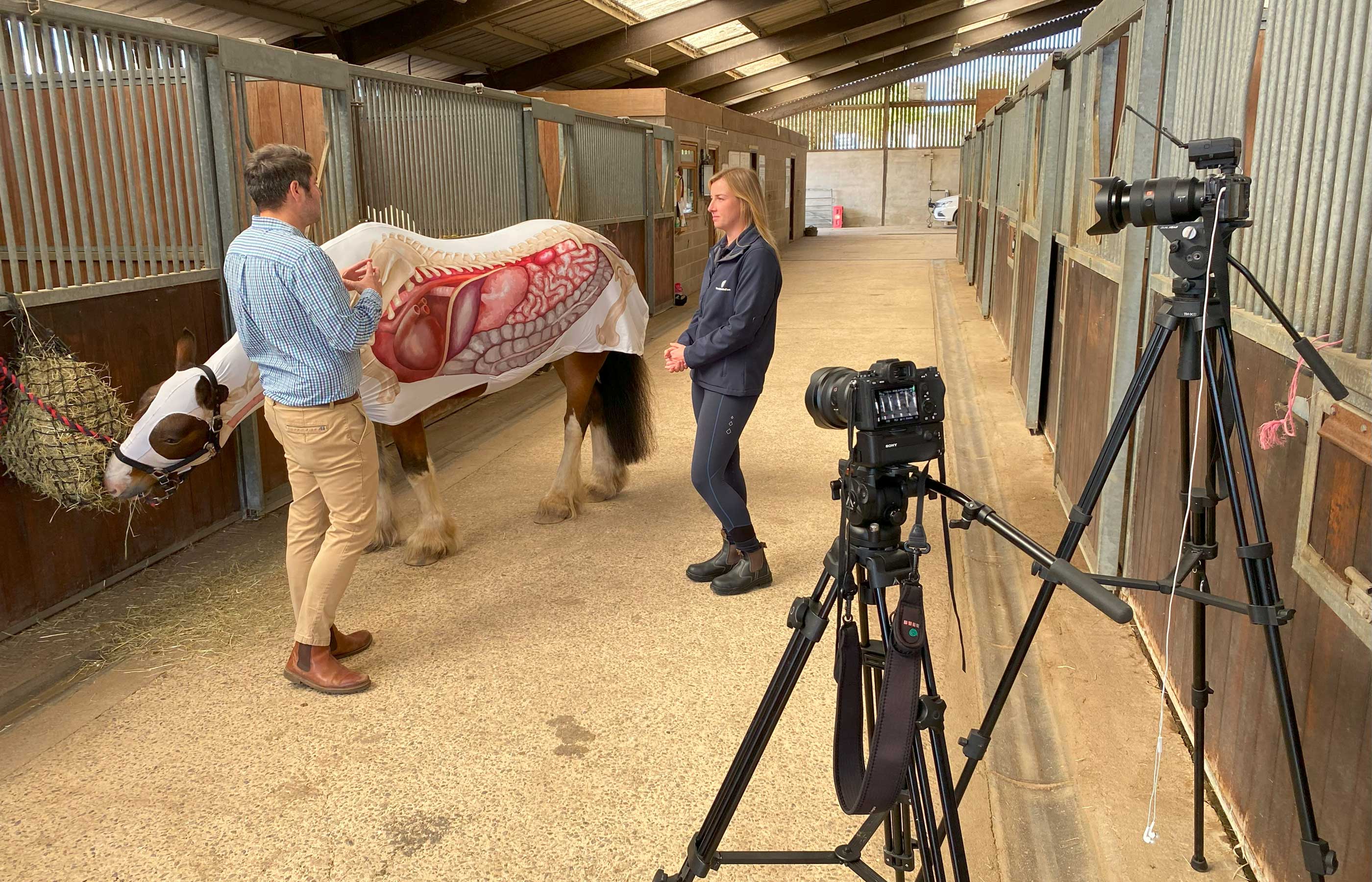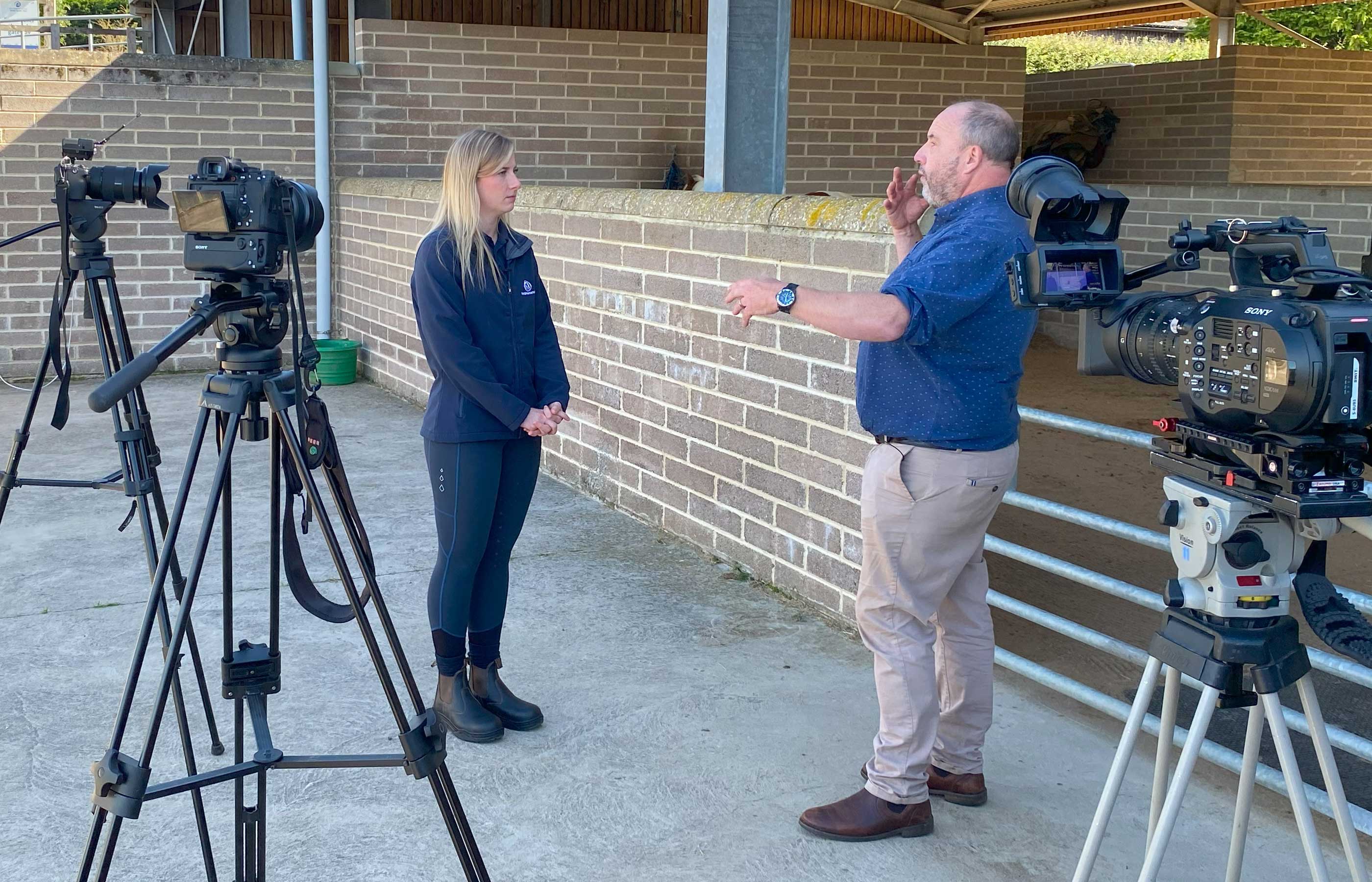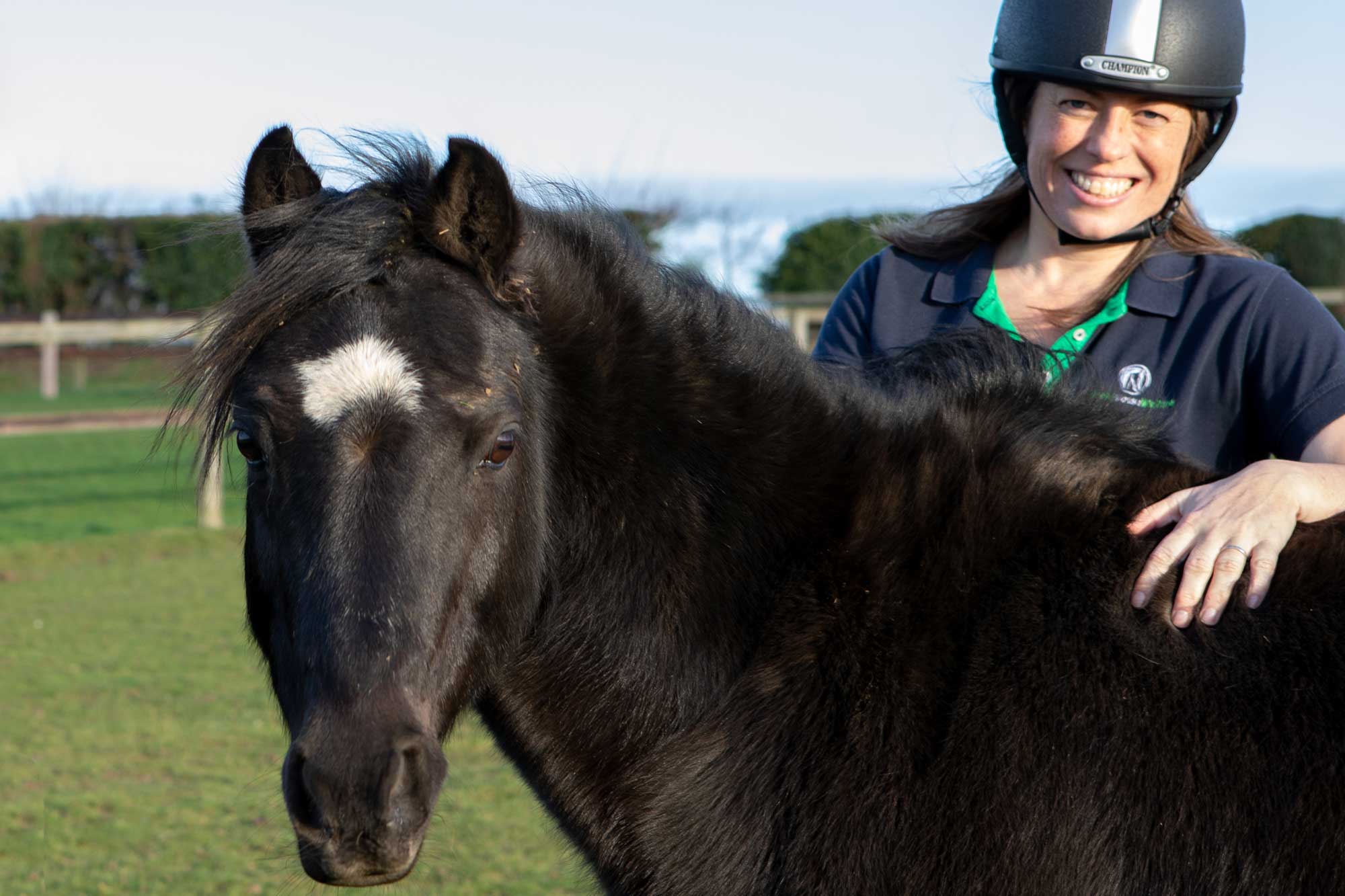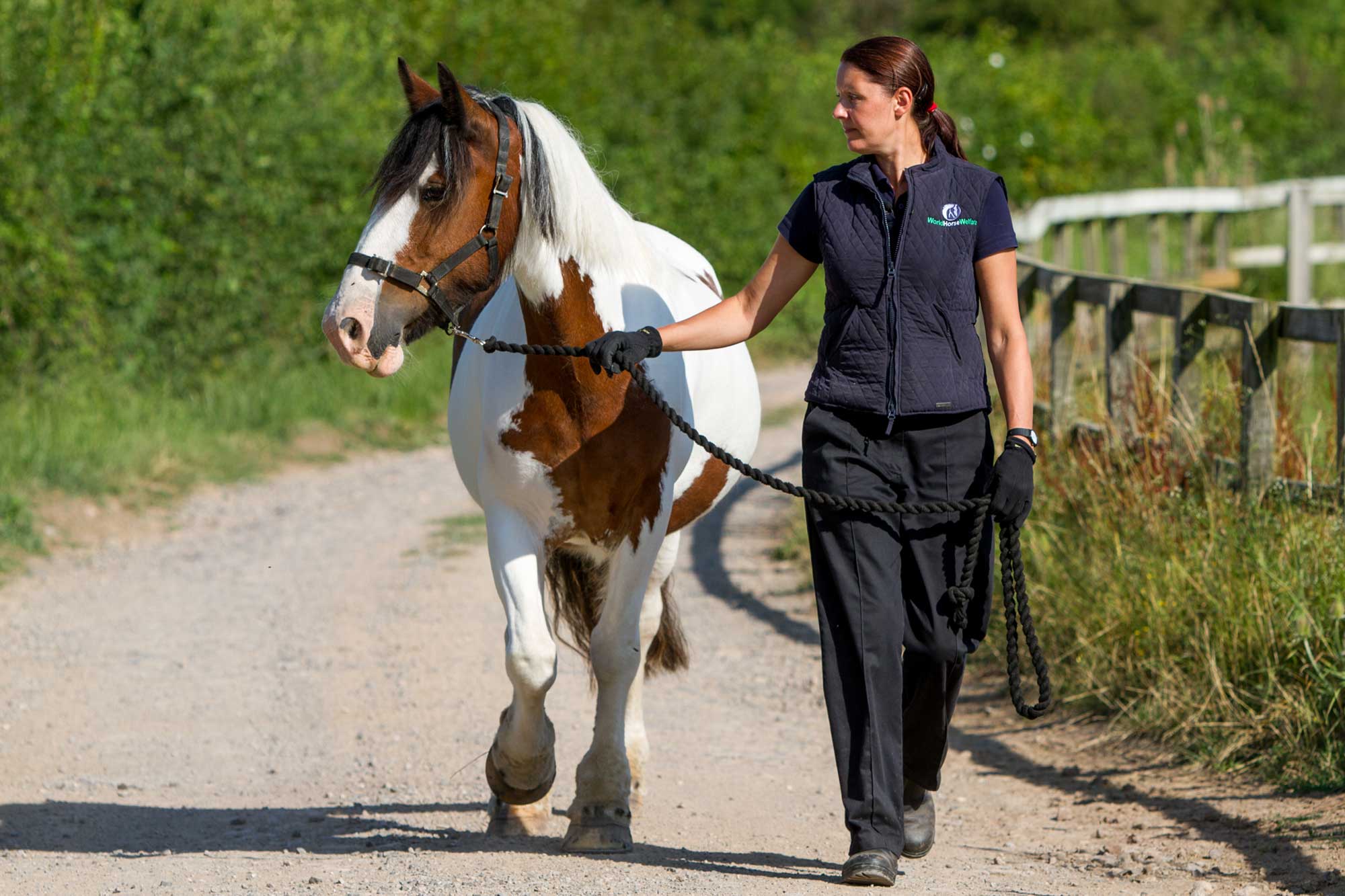Healthy gut equals happy horse – exploring the impact of a horse’s digestive health on behaviour
The second episode in the latest series of 'Horses Explained' covers dental health and digestion.
Posted on 24/07/2025

The second episode of our educational video series ‘Horses Explained’ explores the crucial relationship between equine digestive health, dental care, and behaviour. Now freely available on our Education YouTube channel, episode two sees veterinary dental specialist Stuart Altoft and equine scientist Dr Simon Daniels offer expert guidance that connects gut health with overall wellbeing in a way that is both accessible and science-based.
Stuart Altoft kicks off the episode by explaining how important it is for horse owners to be vigilant for signs of dental pain, as the stoic nature of horses – developed over thousands of years as a prey animal – means they can hide vulnerabilities. He also emphasises the importance of a fibre-based diet for horses’ dental health:
“The more fibrous material horses are eating, the more they have to chew and move their jaw all the way across top get a full grinding surface, so are less likely to develop sharp overgrowths,” explains Stuart. “With horses that are eating a lot of concentrated food, they don’t require that same chewing pattern and tend to develop more overgrowths and problems. I tend to take a fairly simple approach to nutrition – the more natural we can make it, the better really.”
Moving from the teeth further along the digestive system, Dr Simon Daniels, Associate Professor of Equine Science at the Royal Agricultural University, explains why more traditional feeds such as oats and barley can cause changes in behaviour, saying:
“On the simplest level, if we fed what I would call a more traditional diet […] then you get a rapid blood glucose rise. I usually liken that to a ‘small child with a bag of sweets’ scenario, and that’s where we see more excitable behaviour in our horses. There is a reason for that: not only do you have that blood sugar rise, it also alters some of what’s happening in the brain.”
Dr Daniels shares that studies have shown that a horse’s gut microbiome affects their health, with a more diverse microbiome (associated with a more diverse diet) being linked to a healthier animal. Elaborating on how the health of the gut can impact a horse’s demeanour through links with the brain, Dr Daniels says:
“We’ve seen from studies in rodents – and we’ve done some studies ourselves with horses – that when we support the microbiome with prebiotics and probiotics, that can have an influence on behaviour. It may be that horses are more investigative and act in a slightly more natural way, or are actually a little bit calmer in their behaviour. [It seems] there is some messaging that we don’t really understand that comes from output from the hindgut that makes it all the way up to the brain.”
The brain is the focus of the next instalment of ‘Horses Explained’, with neuroscientist and equine behaviourist Dr Emma Lethbridge, and airs tomorrow, Friday 25th July. The remaining episodes in series two are:
- 1st August: Bones & Muscle – with equine anatomist Gillian Higgins
- 8th August: Heart & Lungs – with equine vet and endurance specialist Sarah Coombs
- 15th August: Hormones – with vet and endocrine specialist Andy Durham
- 22nd August: Reproductive System – with equine vet and reproduction specialist James Crabtree
- 29th August: Hooves – with farrier Jay Tovey
- 5th September: Whole Horse – with vet and equine behaviour specialist Gemma Pearson
All the ‘Horses Explained’ videos released to date can be found on our Education YouTube channel or our ‘Horses Explained’ page.
Topics
Related News

Latest episode of Horses Explained sheds light on how the horse’s senses influence behaviour
Dr Andrew Hemmings, a specialist in equine behavioural neuroscience, explained how important the sense of touch is to horses.

Equine experts share insights in new video series that puts the horse front and centre
Eight-part, free to view series focuses on the advice horses would want their owners to take
Recommended Blog Posts

Can you cut the costs of horse ownership without compromising on their care?
Chief Field Officer Claire Gordon looks at ways to cut costs without compromising on care.

An insight into the role of a Rehoming Officer
We catch up with Gemma Barry to find out what life is like as a World Horse Welfare Rehoming Officer.

Top tips and practical advice on managing your horse’s weight to keep them healthy
Assistant Centre Manager Sara Jerman explains practical ways to manage your horse’s nutritional intake and keep them at a healthy weight.
Enjoy reading stories like this?
Join over 65,000 other horse lovers and sign up for our email newsletter

Join over 65,000 other horse lovers and sign up for our email newsletter
Sign me up now